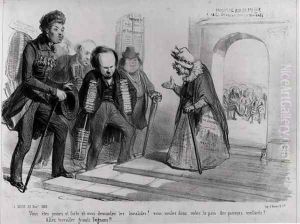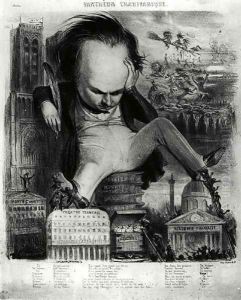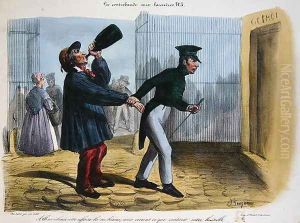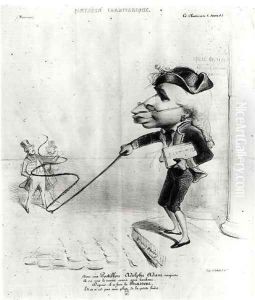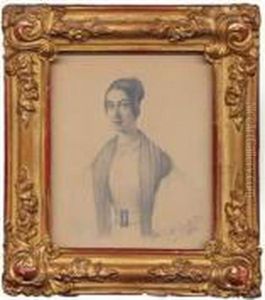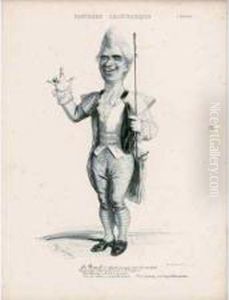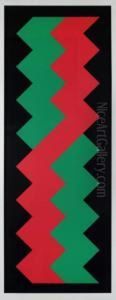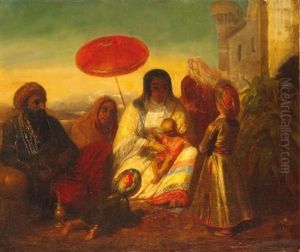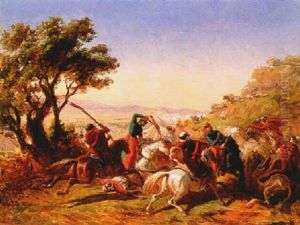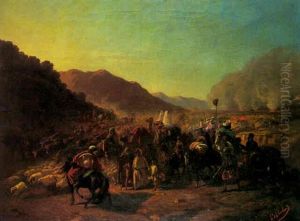Benjamin Roubaud Paintings
Benjamin Roubaud was a French artist and caricaturist born in Marseille, France, in 1811. He is recognized for his satirical illustrations and lithographs that reflected the social and political landscapes of his time. Roubaud studied at the École des Beaux-Arts in Paris, where he honed his skills in painting and drawing. His talent for capturing the essence of his subjects with a humorous twist quickly became apparent.
During the July Monarchy in France, Roubaud contributed to the vibrant culture of political caricature that flourished under the relatively liberal regime of King Louis-Philippe. He became associated with publications such as 'La Caricature' and 'Le Charivari', where his work was featured alongside that of notable contemporaries including Honoré Daumier and Charles Philipon. Roubaud's caricatures often targeted the follies of the bourgeoisie, the corruption of politicians, and the absurdities of social norms.
In addition to his political caricatures, Roubaud also created a series of panoramic works, the most famous being 'Panorama de l'histoire sainte de l'humanité', which depicted a humorous and critical view of human history. Despite his success as a caricaturist, Roubaud also pursued other artistic endeavors, including painting and illustration. His illustrations for books, such as editions of the works of Rabelais and Balzac, were well-received for their wit and creativity.
Tragically, Benjamin Roubaud's life and career were cut short when he died at the young age of 36 in 1847. Although his career was brief, Roubaud left a lasting legacy in the world of French caricature, influencing future generations of artists with his sharp social commentary and distinctive style. His work continues to be studied and appreciated by art historians and enthusiasts of satirical art.
